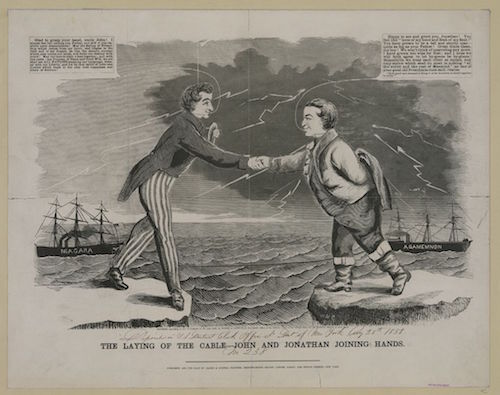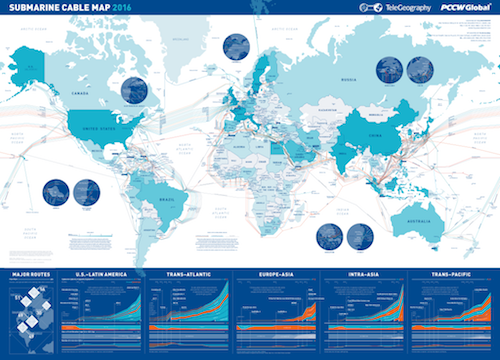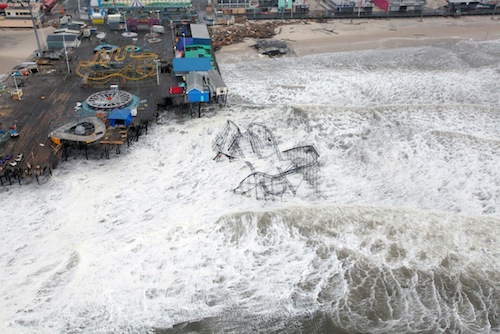Aeolian Harping: Materiality of Poetry in the Age of Digital Reproduction & Ecoprecarity (Part 1)
…And what if all of animated nature
Be but organic Harps diversely framed,
That tremble into thought, as o’er them sweeps
Plastic and vast, one intellectual breeze,
At once the Soul of each, and God of all?
—Samuel Taylor Coleridge, “The Eolian Harp” (1795; published 1796)
Even as a cross-point in a network vibrating with information, she has learned next to nothing.
—Laura Otis on Henry James’s “In the Cage,” in Networking: Communicating with Bodies and Machines in the Nineteenth Century (2001)

POLAR VORTEXTET (a fragment)
Likes superceding talk, integers superceding contact, tags superceding
secrets, tête-à-têtes;
hashtags eclipsing quarrels, disputes, cognition arranged into
sentences; retweets
replacing research, trending replacing intercourse, free because
“virtual” intellectual labor replacing hired gigs; strategy
supplanting awkwardness, excess, styling expelling flesh, feeds from
up to three and a half minutes ago expelling
history; the mandate for constant agitation of high-powered
microwave transmitters and server-farms disguised to heat up
and scatter heavy petroleum fractions upon anonymous
communities via flashes of likeable hashtaggable retweetable
upworthy appearance as author and fan expelling by coercion
any breath of contemplation as neighboring Home Depots are
emptied in last-ditch efforts of ventilators large and small—
the Library of Congress cultivating cloud-farms to store, Kenny G
the pulp to print, the lot, Sisyphean lusoriness: passive
coproduction of the spectacle of information itself afloat
from any infrastructure of responsibility, organ of apprehension….

But the overarching
specter of futility in all that rises beyond the horizon of myface,
myauthorfunction.com once the city’s fantasy-doubles along the
shores, fleeting betting paradises and g-force-jostlers, game under
financialization, go under salt—
proposes it may be time to consider whether the most appropriate plan
of action is to become absolute site-myopic site-smothering
presentists after all:
Smoking of the lake, staccato scansion of the potholes tearing up
Burnham’s grid, pathos of plans to haul all the basement suitcases
full of ice-chunks across the bought-out offset carbon paths into the
red blot of Pacific lingering in the daily graphs of the explainers—
Cantre’r Gwaelod interposing itself as Pine Island melts, villagers
pointing their phones at the peat, antediluvian oaks and newly
fathomable peaks, radioactive tides broadcast;
One consults with the elders who may not be around in a 4C world:
Marinetti hailing the most beautiful day-after-tomorrow, Lyn in
the tunnel below Niagara leaking in here and there, deciding it’s
okay if humans don’t last; or John issuing a stern warning to the
anxious in the form of Safe, and Madeline signing my book “exactly
reversible destiny to you…”

If the only thing that matters is the need to cut off the conduits of the whole neoliberal vampire period to stave off further fall and rise:
If you are a writer, for better or worse, intravenous: what the eff are
you going to do about it?:
Discuss.
An emphasis on the materiality of the text has been a defining principle of innovative writing for decades: wave after wave of movements has stressed the need to grapple critically with the opacity and mediation of language, and this obligation has become de rigueur for many heirs of the avant-garde. Yet the contradictions of producing literature and art within an apparently limitless network—as navigation of an interminable series of interrelated ecological disasters suggests the dematerialization of the art object is a fallacy—ask us to revisit and revise the lessons of modernist, Language, and post-Language poetics. While digital media offer unprecedented opportunities for the production, motility, distribution and preservation of ideas, they also necessitate collusion with algorithms and poisonous ecologies beyond our control or even awareness. “Watch a video on your iPad for a half hour and somewhere in America about 10 pounds of coal and a gallon (in oil equivalent terms) of fracked natural gas is burned,” as Mark P. Mills points out—in Forbes.
What species of political and ethical complicity must we reckon with in participating in the global network, with its networks of data extraction, storage, and surveillance, and how can we respond critically? What structures of oversight and obscured labor/exploitation do search-string poetics, tactics of appropriation and distribution, and unconstrained digital publication need to confront, perhaps to resist? As producers of “content” and “sharers” of ideas, can we learn anything from movements of “degrowth” or decroissance that have flourished outside of the U.S.?
What kinds of materialities, abject, dilated, distressed or otherwise, might counteract our collaboration as cultural producers with narratives of infinite expansion, total information awareness, access enforced by globalization, resource extraction, and the marketizing of knowledge?
And what can we learn about our apprehensible homes in the process of finding answers?
A pile-up of disconcerting questions about the structures that subtend our research and work as writers has been troubling my sleep recently. Disquiet sprawls, concurrent with an infinite tangle of search strings surrounding a Superfund site intimate to me, and its channeling into something approximating verse. At the Poetics: (The Next) 25 Years conference in Buffalo last April, I read a small fraction of the questions aloud, hoping to open up a conversation about poets and artists as “content” generators and data miners; the carbon footprint of the virtual; economies and ecologies of information labor, production, drain; information storage, leakage, and hoarding; appropriation, intention, and algorithmic complicity; abject and dilated materialities; writing and degrowth/décroissance/decrecimiento/decrescita; critical versus de facto obsolescence of the feed, the site, the book; reading tempos & the potential resistance of print versus pdf; the poetics/politics of scanning; the survival of memory and posterity against the archive; calls to discourse versus correspondence; server warming and the logic of infinite production; the radical possibilities and limits of social networking versus person-to-person contact; the status of the live event/action/debate/friendship in the context of the stream, live feed, recording, reperformance; intentional and collateral community; English-only discourse; new, multilingual, and asemic literacies, and the logic of mastering digital profiles; art, globalization, and bandwidth; the apparent dematerialization of the body in online communities and the persistence of racism/sexism/classism/ableism/heterosexism/transphobia/etcetera therein: about the transmogrification, or non, of our social life with—and as—digital tools.
I started answering at home, with the quaint eyesore outside Terry’s kitchen window on Exit 43. I was suddenly (a decade or so back) working in the Northeast after long absence and coming back for weekends to the island of my youth. Worrying the future of post-Language poesy over the Greenpoint Oil Spill, and getting reacquainted—through odor and the Real Estate section of the New York Times—with the underpinnings of the Exxon-Mobil Masterpiece Theater of yore. Mom was undergoing chemo. I was searching—through the wireless, naturally—for relations.
The process sends me back (in pages) to the stenches of the grocer-fiancée wafting through the wired coop of a nameless lady telegraphist in Henry James’s 1898 “In the Cage.” James’s tale sets us within the confined chambers of an “obscure little public servant” in fashionable Mayfair with too much smarts, a girl of modest means accumulating a maggoty pie of knowledge by way of the semi-encoded memos of the wealthy she is paid to count and transmit. Her insight into the syllables of “the class that wired everything, even their expensive feelings” is punishingly one-way, a dead end cleaved from any context of recognition in “the dim vast of trade”: “It had occurred to her early that in her position—that of a young person spending, in framed and wired confinement, the life of a guinea-pig or a magpie—she should know a great many persons without their recognising the acquaintance.” But influence taking the form of wafts of air, perfumed, poisoned, or simply smelly, transgresses social fences nevertheless:
Her function was to sit there with two young men—the other telegraphist and the counter-clerk; to mind the “sounder,” which was always going, to dole out stamps and postal-orders, weigh letters, answer stupid questions, give difficult change and, more than anything else, count words as numberless as the sands of the sea, the words of the telegrams thrust…through the gap left in the high lattice, across the encumbered shelf that her forearm ached with rubbing. This transparent screen fenced out or fenced in, according to the side of the narrow counter on which the human lot was cast, the duskiest corner of a shop pervaded not a little, in winter, by the poison of perpetual gas, and at all times by the presence of hams, cheese, dried fish, soap, varnish, paraffin and other solids and fluids that she came to know perfectly by their smells without consenting to know them by their names.
The barrier that divided the little post-and-telegraph-office from the grocery was a frail structure of wood and wire; but the social, the professional separation was a gulf that fortune, by a stroke quite remarkable, had spared her the necessity of contributing at all publicly to bridge.
James’s protagonist survives her days as a guinea pig in a great social experiment by shutting out the noxious materiality of subsistence, as-yet-unidentifed solids and fluids that bind us in smell across the lattice, or cage, of wood and wire, in favor of a wireless imagination. These reminders of her household’s “meanness,” and of her scrimping betrothed grocer Mr. Mudge across the air, of all that underpins the dinner plans of Mayfair, play in the head of James’s lady scrivener privately as she enters by way of transcription into the lives of the indebted rich—plastic and vast, intellectual, Aeolian.
An artist, translator, and teacher, Jennifer Scappettone was born and raised in New York and earned ...
Read Full Biography

